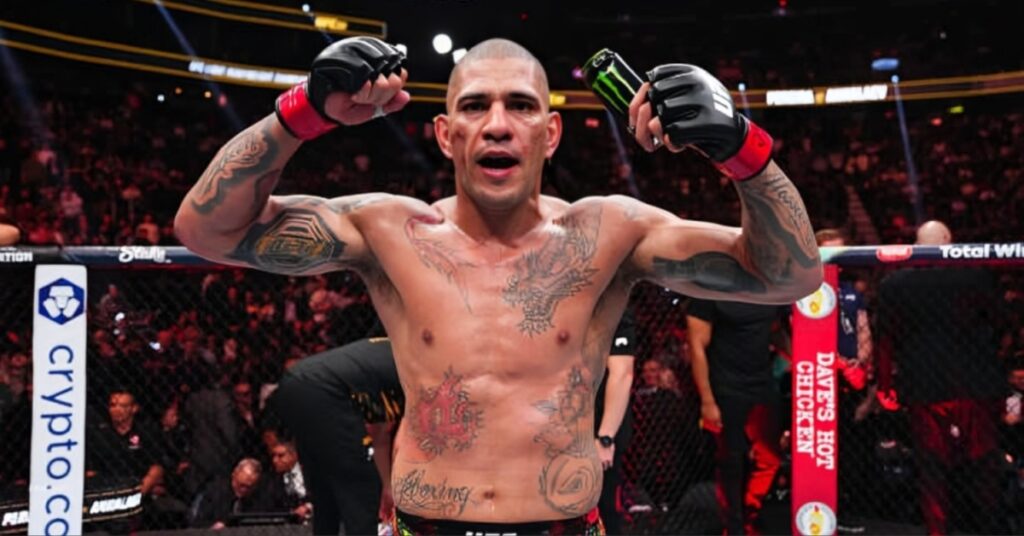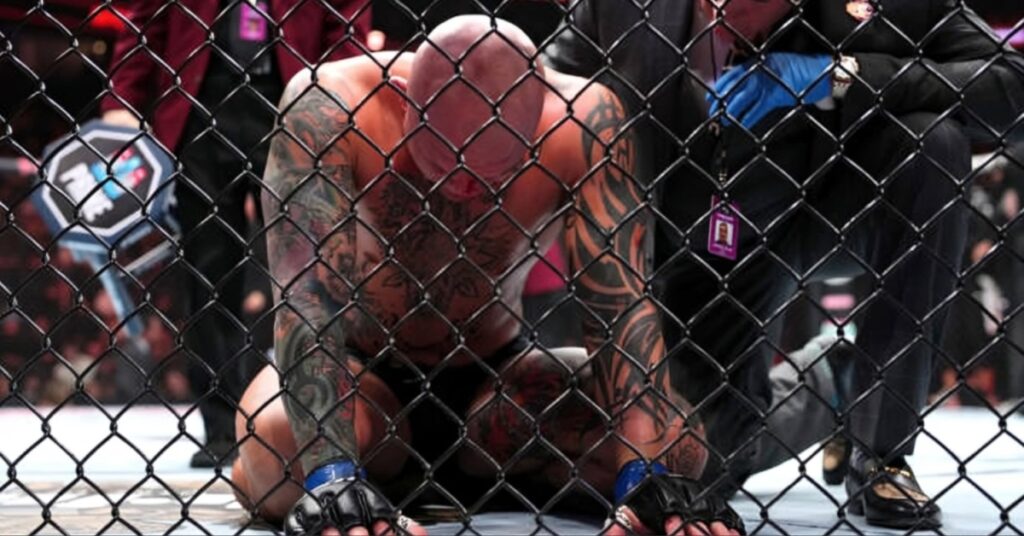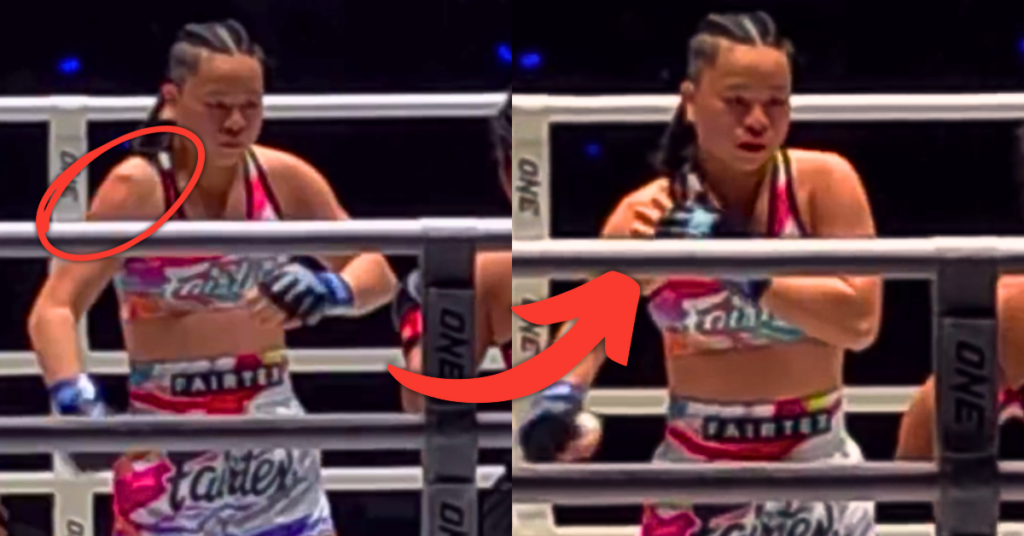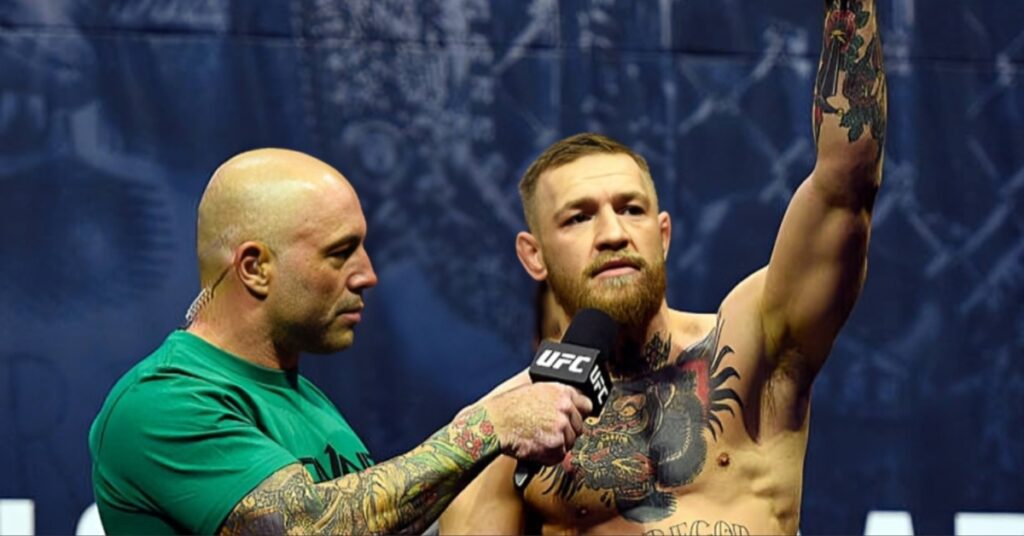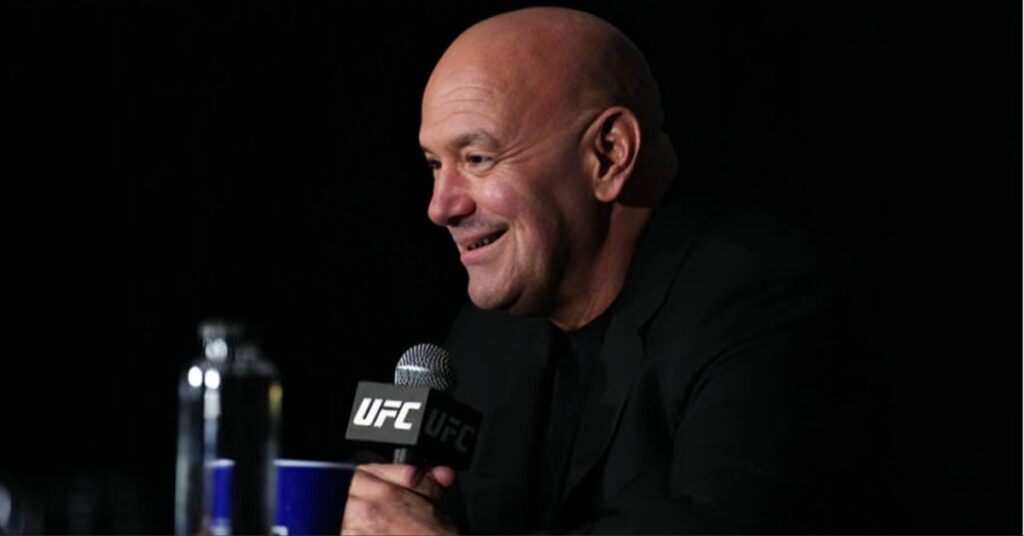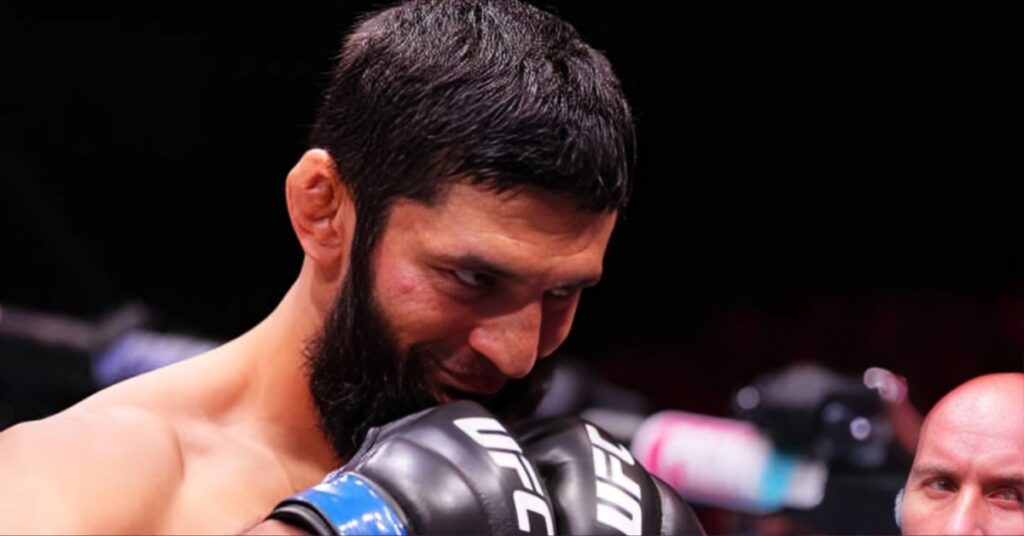Why the UFC’s Support of Sports Betting May Actually Keep MMA Honest

(Owning a sports promotion *and* a gambling conglomerate seems like a conflict of interest. But in reality, legal sports gambling makes suspicious behavior easier to spot. / Photo via Getty)
By Mike Fagan
The UFC’s public support of expanding regulated sports betting in the United States should come as a surprise to no one. UFC co-owners Lorenzo Fertitta and Frank Fertitta III are heirs to the Station Casinos empire — with Frank currently serving as Station Casinos’ Chairman & CEO — and UFC President Dana White has a famous gambling habit that occasionally affects the promotion’s business relationships. UFC broadcasts feature gambling lines during fighter introductions, and the pre-fight panel show often features a Vegas bookmaker discussing lines.
The UFC revealed its stance on sports betting to ESPN on Thursday, who framed the story within the legal situation ongoing in New Jersey. On October 17th, New Jersey Governor Chris Christie signed legislation repealing the state’s ban on sports gambling. One week later, federal judge Michael Shipp issued a restraining order preventing local racetracks and casinos from taking bets on sports. The restraining order comes by request of the four major sports organizations in the U.S., who have a pending lawsuit to permanently prevent the state from allowing sports betting.
Shipp said the leagues demonstrated they would suffer “irreparable harm” if New Jersey allowed race tracks and casinos to accept wagers, adding: “More legal gambling leads to more total gambling, which in turns leads to an increased incentive to fix plaintiffs’ matches.”
This is horseshit.
The sports betting industry will thrive whether it’s legal in brick-and-mortar casinos outside of Nevada or not. Joe Sports Fan can find someone to book his action, whether it’s an offshore, online book or his kinda-shady buddy at work. And as long as there’s some financial incentive riding on a game (and this includes a league’s own incentives), there’s some risk for match fixing. Increasing the legal availability of sports betting doesn’t change that risk.
It does, however, affect the ability to police it. While Shipp buys into the match fixing fallacy, regulated sports betting makes it easier to detect suspicious activity. The UFC understands this. UFC Executive Vice President and COO Lawrence Epstein told ESPN, “Sports wagering done in a way, like Nevada, that is properly regulated will give more confidence to fans that games and fights aren’t fixed.”
We’ve already seen this scenario play out in professional tennis. Tennis and MMA may seem to have little in common on a base level, but they are very comparable for our purposes. Both sports feature two individuals (ignoring doubles in tennis and two-on-two MMA), there’s a market for wagering (this Sports on Earth article notes that tennis is the third-most popular sport to gamble on in Europe, Asia, and Australia), and a meritocratic pay model which rewards the top athletes with the lion’s share of the prize money.
Tennis has seen a rash of match-fixing scandals over the last few years, including the most recent scandal featuring Italian players Daniele Bracciali and Potito Starace. While Bracciali and Starace were done in by intercepted Internet communications, analyzing betting patterns can detect abnormalities in play.
A study of over 6,200 first-round matches on both the men and women’s tours suggested an average of 23 matches are fixed each year. The study looked for betting market prices that varied widely from the study’s two predictive models. The study found 20 cases that deviated from the models by 16 to 29 percent, which could have resulted from wagers amounting to as little as $100,000 on lower-ranked players.
Betfair, the world’s largest internet betting exchange,* closed wagering and refused to settle bets in a 2007 match between Nikolay Davydenko and Martin Vassallo Arguello. At one point during the match, Arguello, then-ranked 87th in the ATP rankings, was still an 11-8 favorite after losing the first set 6-2 to Davydenko, ranked 4th in the ATP and the tournament’s top seed. Davydenko retired from the match in the third set. An ATP investigation cleared Davydenko and Arguello, though “investigators were unable to review phone records that were first withheld and then destroyed.” However, the overwhelming wagering evidence seems to indicate something was up.
* An exchange differs from a traditional sportsbook. Bettors set their own odds and the exchange matches up gamblers who take opposing sides.
A similar, if more damning case, took place this past August in a match between Boy Westerhof and Antal van der Duim. Early betting on the match favored van der Duim as a 75.7% favorite, and the match drew more than eight times as much money wagered than other matches in the tournament. After losing the first set, the odds on van der Duim dropped to 71.9%. From the article: “In other words, losing the first set has made no difference to his chance of winning the match.” This shady betting pattern continued throughout the match until van der Duim – surprise! – won 3-6, 6-4, 6-4.
If you’re still unconvinced that betting markets can help snuff out match fixing, the Guardian’s article on Davydenko and Arguello notes that the ATP has an information exchange agreement with Betfair and other UK and European books.
It shouldn’t take much prodding to see how the UFC could be vulnerable to fight fixing. One need only look at the purse numbers for prelim fighters. Considering their connections in the gaming world, it’s likely the UFC has access to wagering information as well, if not an official information exchange. And the integrity of the sport is important given its association to both boxing and professional wrestling.
Of course, the company probably also recognizes that betting on a fight can make even Darren Elkins vs. Lucas Martins a must-see affair.

